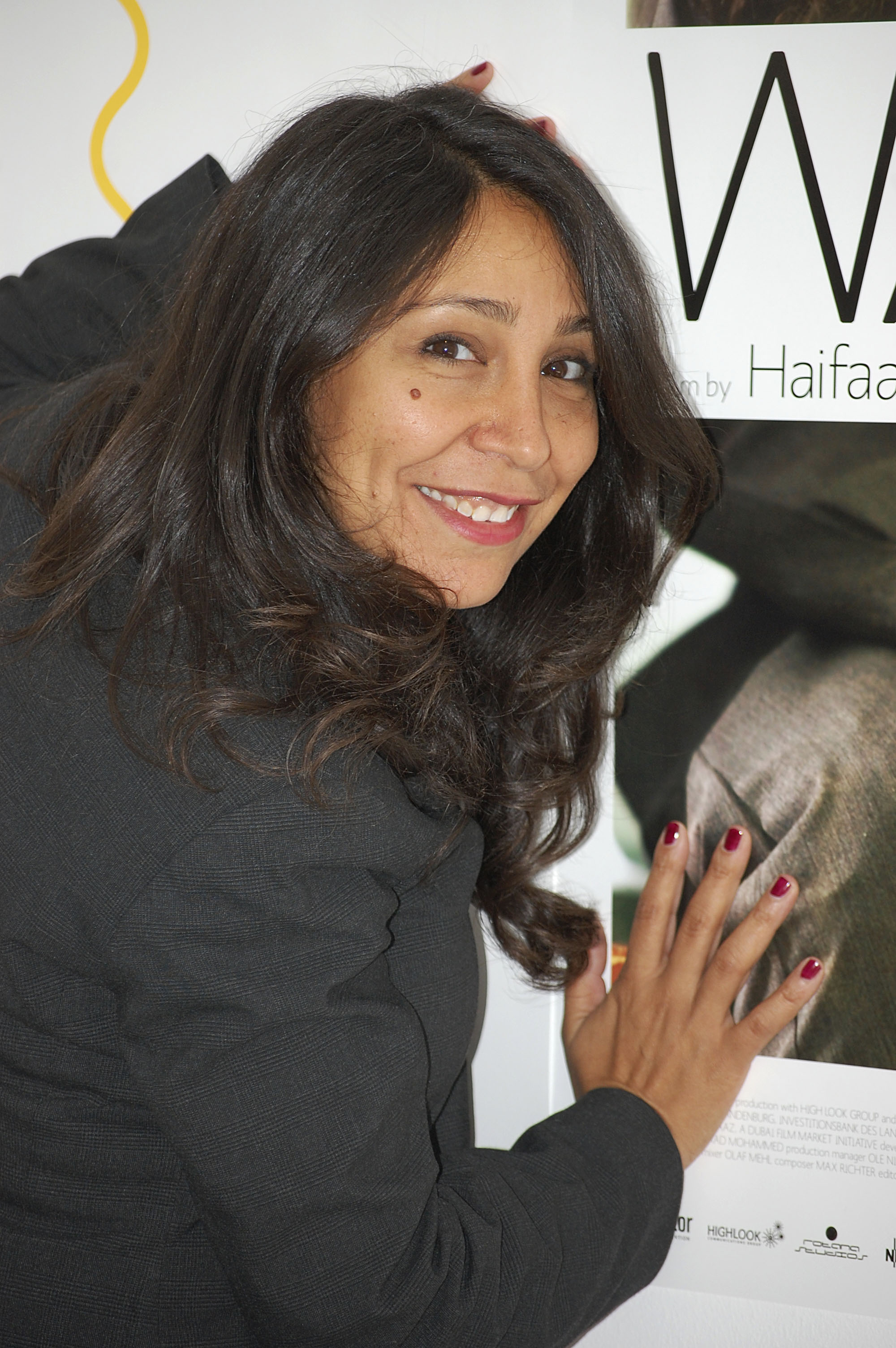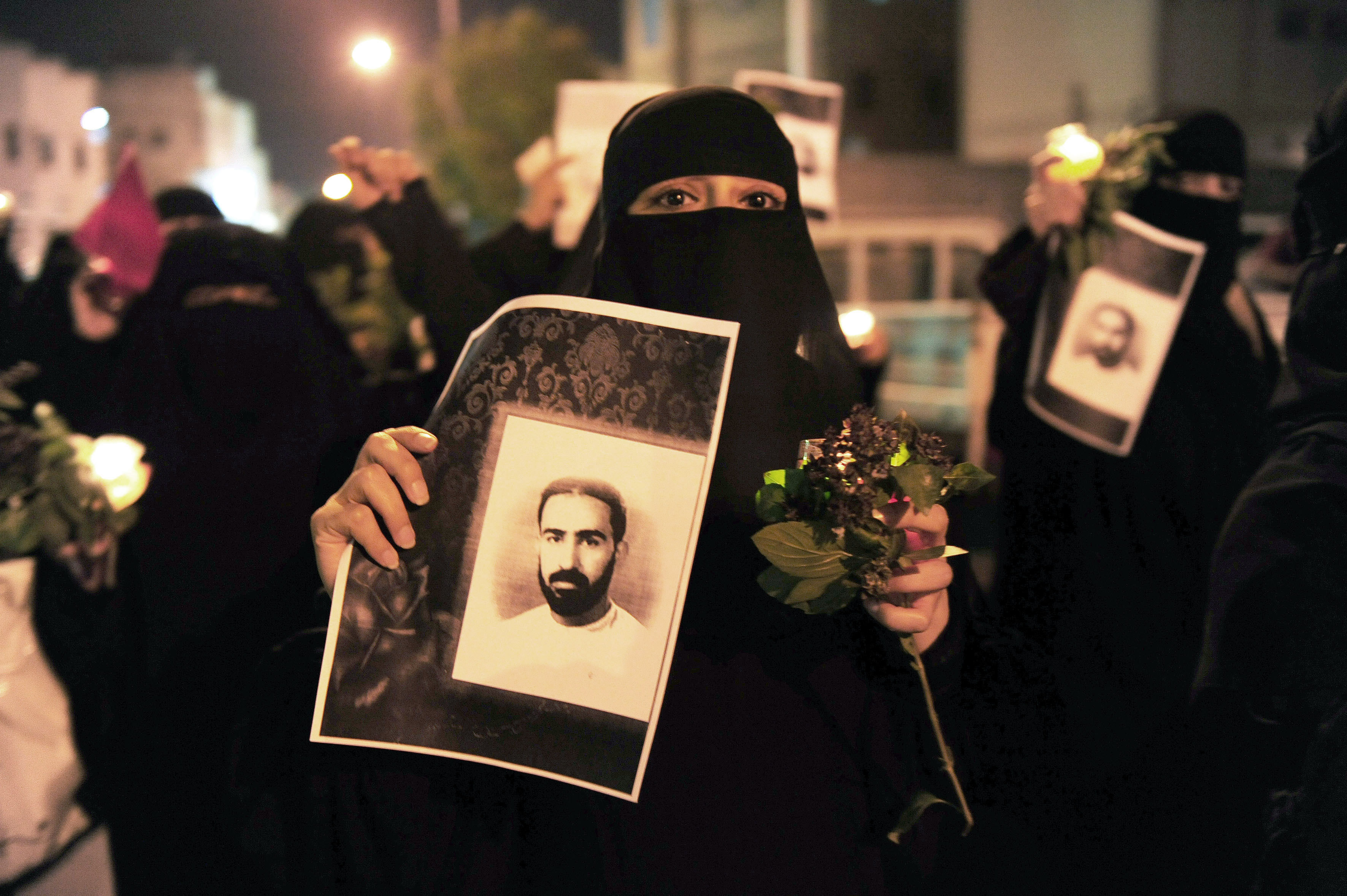Haifaa al-Mansour, a woman’s voice from Arabia

Saudi filmmaker Haifaa al-Mansour has won worldwide acclaim for her first feature film, Wadjda, filmed in her home country. Al-Mansour, who has traded her veil for jeans, has cultivated a style that allows her to make strong statements with gentility.
Twelve-year-old Wadjda lives with her mother. Her father left them behind to find another woman who could bear him a son. The young girl dreams of owning a bicycle, but Saudi society frowns on women who ride them. So, Wadjda comes up with various strategies to get herself a bike. Finally, she decides to take part in a Koran recitation contest, as the prize money could help her realise her dream.
Within the intelligent but somewhat mischievous girl awakens a desire to bypass the rules of her strict Muslim society. She wears sneakers and listens to American pop and rock music. In this sense, Wadjda resembles al-Mansour herself, who wants her films to get noticed but without shocking the “complex Saudi society, a fertile terrain for fiction”.
swissinfo.ch: Doesn’t your emancipated appearance totally contradict most people’s picture of a typical Saudi woman?
Haifaa al-Mansour: Yes, especially when you know that I grew up in el-Zilfi, a small town in the provinces. The role of the Saudi woman has changed, however. Today, many writers and journalists work in multimedia. Their appearance has changed – not all of them wear a burka. Today, the country is more diverse, which affects both people’s appearances and their thoughts.
swissinfo.ch: Where does your passion for filmmaking come from?
H.aI-M.: I’m from a family of 12 children. To entertain us, our parents let us watch American, Indian and Egyptian videos. Cinema and television allowed us to escape our modest upbringing and discover the world. Later, as I was beginning my career, I realised the voices of Saudi women weren’t being heard, and I wanted to make mine stand out. Films are a way of expressing myself. Thanks to a short film I made, I had the opportunity to take part in a film festival in Abu Dhabi.

swissinfo.ch: As a director, you are a pioneer in your country, where there is no film production.
H.aI-M.: I say it very proudly: I am the first female Saudi film director. That doesn’t mean filmmaking has found its place in Saudi Arabia, but film culture is slowly taking root. I hope that Wadjda will open doors for young people and women to believe in their abilities and to try and forge their own paths.
swissinfo.ch: How did you come upon the character of Wadjda and how did you find the right young actress to play her?
H.aI-M.: At first, I wanted to make a film about my city, my parents and my school. But then my niece’s friendly, spontaneous personality inspired me to create the film’s main character. It was very difficult to find the right actress to play her because recruiting actresses through the media doesn’t exist in the Arab world. So, I had to count on local production companies that recruit young singers and dancers for festivals and celebrations. That’s how I found Waad Mohamed, who was acting in a small theatre. She showed up to the audition in jeans and Converse All-Stars and was listening to Justin Bieber songs. A little girl who belongs to the internet generation.
swissinfo.ch: And why does your main character want a bicycle so badly?
H.aI-M.: Because it’s a symbol of speed, freedom and panache. But it’s a gentle vehicle that doesn’t shock. It fits with my style. I am seeking a dialogue, not confrontation.
swissinfo.ch: All of your actors are Saudi. The women were allowed to play their parts without veils, before the world’s eyes, but they are not allowed to dress that way on the street. How do you explain this contradiction?
H.aI-M.: Saudi Arabia is full of contradictions. It is a conservative country, but behind the veils are sensitive women who like to laugh, be happy and love life.
swissinfo.ch: This sensitivity comes through in the themes you explore in your film, like underage marriages, illegal immigration or the fact that women can’t move freely around the country. It’s full of difficult topics that you treat with caution. What was your thought process like?
H.aI-M.: I wanted to respect the country’s traditions and share my thoughts with Saudis through my film without shocking them. I believe that a filmmaker draws inspiration from his or her environment. In a country that is nervous about films, I wanted to tell people a story that has to do with their lives.
swissinfo.ch: Did the films draw reactions in your country?
H.aI-M.: No, I didn’t get any feedback. But many Saudis came to Dubai when the film was shown there at an international film festival. Wadjda had previously benefited from extensive Saudi press coverage at the Venice Film Festival.
swissinfo.ch: And what are your dreams for Saudi Arabia?
H.aI-M.: I dream of a land where people treat one another with tolerance, solidarity and openness – and where women have a higher standing in public life.
The director, screenwriter and producer was born in Saudi Arabia in 1974. She studied English literature at the American University in Cairo. After her studies, she worked in Saudi Arabia where she made three short films: Who?, The Bitter Journey and The Only Way Out.
In 2005, she met her future husband, an American diplomat, at the screening of her first documentary, Woman Without Shadow. The couple later moved to Australia, where the director earned a Masters’ degree in film studies from the University of Sydney. After some time in Washington, DC, the couple moved to Bahrain with their two children.
The feature film Wadjda premiered in cinemas in 2012, with an initial showing at the Venice Film Festival. The director faced many challenges in making the film in Saudia Arabia, especially while filming on the street.
“Because Saudi society is not mixed in public, I had to change my work habits and avoid public places as much as possible,” she told swissinfo.ch. “In one street scene, I had to hide in a van and instruct my actors via walkie-talkie.”
Wadjda was supported financially by Saudi Prince Al-Walid. The co-production with the German film producer Razor has already won several prizes at international film festivals, including best film in the “arts” category and best screenplay, as well as the international film critics’ prize in Venice, best film and best actress in Dubai and the audience award in Freiburg.
The film is currently playing in Swiss cinemas and was shown at the Fribourg International Film Festival in March.
(Adapted from French by Veronica DeVore)

In compliance with the JTI standards
More: SWI swissinfo.ch certified by the Journalism Trust Initiative









You can find an overview of ongoing debates with our journalists here . Please join us!
If you want to start a conversation about a topic raised in this article or want to report factual errors, email us at english@swissinfo.ch.